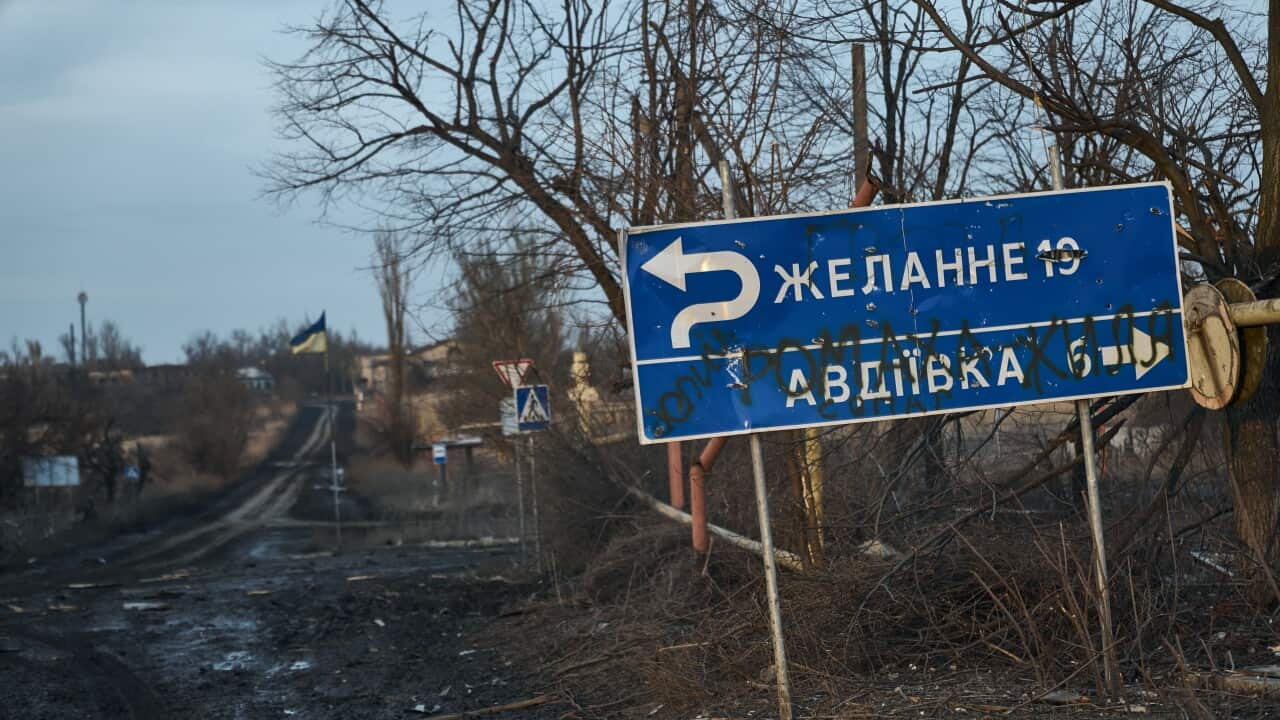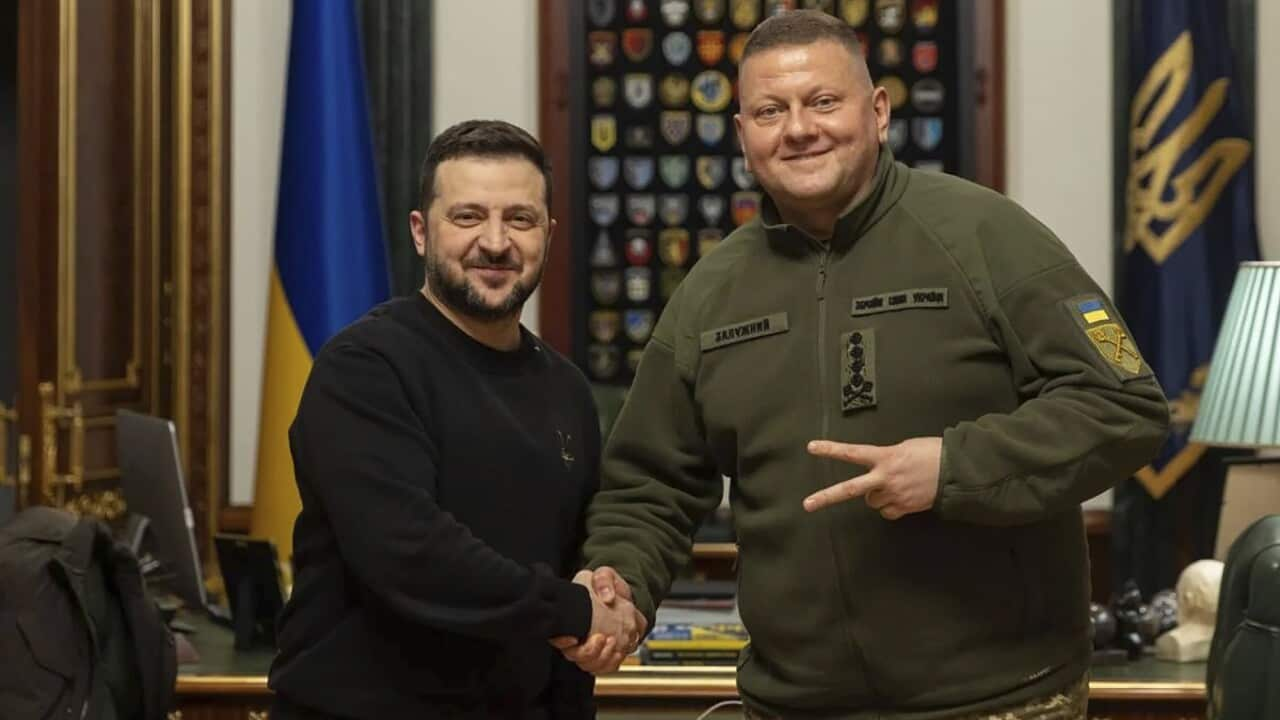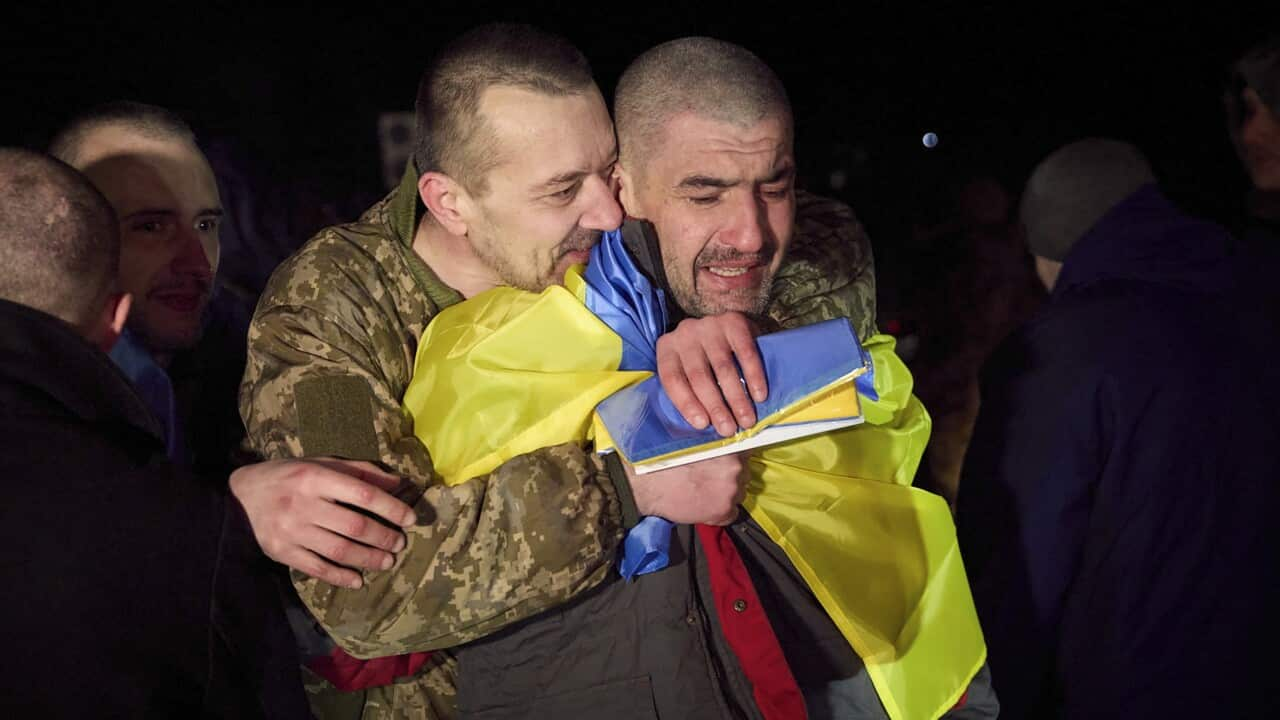Key Points
- A shortage of munitions and fear of encirclement led Ukrainian troops to withdraw from Avdiivka.
- Experts say the city isn't of huge strategic importance but its capture could affect how the conflict progresses.
- Almost two full years into the war, Russia is now occupying up to around 20 per cent of Ukraine.
Just a week out from the Russia-Ukraine war entering its third year, battlelines were redrawn around one of Ukraine's eastern cities.
Ukrainian troops withdrew from Avdiivka allowing Russian troops to move in.
It was Russia's largest battlefield gain in nine months and came after one of the most intense battles of the war.
What happened in Avdiivka?
Ukraine army chief Oleksandr Syrskyi announced in a Facebook post on Saturday that the country's troops had withdrawn from Avdiivka to avoid encirclement.
The withdrawal followed months of fierce Russian attacks and, according to Reuters, marked the biggest shift in the front lines since
Jessica Genauer, a senior lecturer in international relations at Flinders University, told SBS News it was not surprising to learn Avdiivka had been lost to Russia, but said the outcome had not swung the conflict dramatically in Russia’s favour.
"Given the fact Ukraine still requires additional weapons and ammunition in order to really be able to not only hold ground, but also to engage in some kind of counteroffensive, it's not surprising that they have lost Avdiivka,” she said.
Genauer said she did not see the conflict ending any time soon, given that Russia had not captured enough of Ukraine and Ukrainians still felt there was reason to continue the fight for independence.
However, she said that, if the war ended today, one side would be more likely to claim a victory.
“Russia is occupying up to about 20 per cent of Ukraine and so if there was a political solution to be struck at this stage, that essentially froze the territorial boundaries where they currently stand in terms of occupation, that would benefit Russia.

Senior lecturer in international relations at Flinders University Jessica Genauer has described the conflict in Ukraine as a war of attrition. Source: Supplied
Genauer said Ukraine would be reluctant to engage in negotiations at this stage and instead "they would want to wait and see whether they can gain additional military victory on the battlefield throughout this year".
Every building in Avdiivka has been destroyed
Avdiivka sits in the industrial Donbas region, 15km north of the Russian-occupied city of Donetsk.
The city, which had a pre-war population of about 32,000 people, was briefly occupied in 2014 by Russia-backed separatists who seized a swathe of eastern Ukraine, but it was recaptured by Ukrainian troops who then built extensive fortifications.
Before the war, its Soviet-era coke plant was one of Europe's top producers of the coal-based fuel used in the steelmaking process.
In the days before Russia took control of the area, it was estimated that fewer than 1,000 residents remained there, many sheltering in cellars and basements.
Officials have said not a single building remained intact.
Avdiivka had far greater symbolic than strategic importance
Genauer said that, while Avdiivka did not have huge strategic importance, it was "symbolically important".
In the context of waning morale, a withdrawal from a "not particularly strategically significant town or city can have an impact symbolically and on morale", she said.
While Ukrainians remained "committed to trying to fight this war and ensure that the territory that was captured by Russia will be taken back by Ukraine", morale had now dipped after being buoyed by the huge support Ukraine received when the country was first invaded.
“The front line has been more or less static for a very long time in this war — we've seen for months, there's been hardly any movement to either side.

Ukrainian President Volodymyr Zelenskyy visited his country's troops in Avdiivka in April 2023. Source: Getty / Anadolu Agency
Charles Miller, senior lecturer in politics and international relations at Australian National University, explained Avdiivka “is a little bit of Ukrainian held territory which was sticking out like a kind of a peninsula into Russian territory".
He said that, essentially, the Ukrainians had withdrawn to "ensure that their forces defending the city don't get caught, surrounded and wiped out by the Russians".
"Provided that the Ukrainians can re-establish a really strong defensive line, hopefully it will not lead to any further breakout by the Russians.
"But it does show that the next year for Ukraine is going to be very tough, and it's going to have to have the international community's help."
Similar to Genauer's point, Miller said that, while Avdiivka wasn't important strategically, its capture could be considered “a propaganda victory for the Russians".
"It works in favour of Vladimir Putin’s goal of convincing the West that Ukraine is a hopeless cause and that they might as well stop giving it weapons, because if they stopped giving the weapons then the war would end," he said.
"It's also a setback for President Volodymyr Zelenskyy because it shows that Ukraine is very definitely on the defensive."
Who has the upper hand in the "ongoing war of attrition"?
Miller said both Ukraine and Russia had made military progress over the past two years.
"Ukraine was obviously on the defensive at the very beginning because they were being invaded, but then with their fantastic counter-defensive in Kharkiv they established the initiative and made quite spectacular gains against the Russians and against the separatists," he said.
Miller said Russia's subsequent "slow grinding counteroffensive" hadn't achieved a lot, and neither had a counteroffensive from Ukraine last year.
He said that, while he didn't think Ukraine would make significant gains in 2024, if Ukrainian troops prevented Russia from making major breakthroughs and conserved their forces and munitions, they may be able “to take the initiative back in 2025”.

Avdiivka sits in the industrial Donbas region, 15km north of the Russian-occupied city of Donetsk. Source: Getty / Libkos
"What we're starting to see is more or less a state of frozen conflict or war of attrition — where there just really isn't a lot of movement to either side now."
"In some ways, because Ukraine is the state actor that started off with much lesser military capability, you could say that it's impressive that Ukraine can even hold their ground and that Russia has not succeeded in that initial goal — in taking over the entirety of Ukraine and really affecting regime change within Ukraine.
"On the other hand, Ukraine's objective would be to ensure that all Russian soldiers are evicted from Ukraine's territory, so they would want to take back any part of Ukraine that has been occupied by Russian forces and, at this stage, it's looking like that's going to be a very difficult goal to achieve."
While it was likely a "negotiated solution" may eventuate further into the conflict, she said that was currently not an option either party had given any time to.
Ukraine continues to call for more weapons
urged allies at a global security conference on the weekend to plug an "artificial" shortage of weapons that was giving Russian forces the upper hand on the battlefield.
Zelenskyy said that sending additional weapons and air defences to Ukraine was the most important thing its allies could do, adding that US military aid was imperative.
"If your artillery (range) is 20 km, but Russia's is 40 km, there is your answer," Zelenskyy said.
Of all countries, the US has so far provided the most military funding to Ukraine, with US$44.2 billion ($67 billion) in weapons funding since February 2022.
Denmark has committed to providing its entire artillery to Ukraine.
On the weekend, Danish Prime Minister Mette Frederiksen said: "They are asking us for ammunition now, artillery now ... from the Danish side, we decided to donate our entire artillery."
- With additional reporting from Reuters














